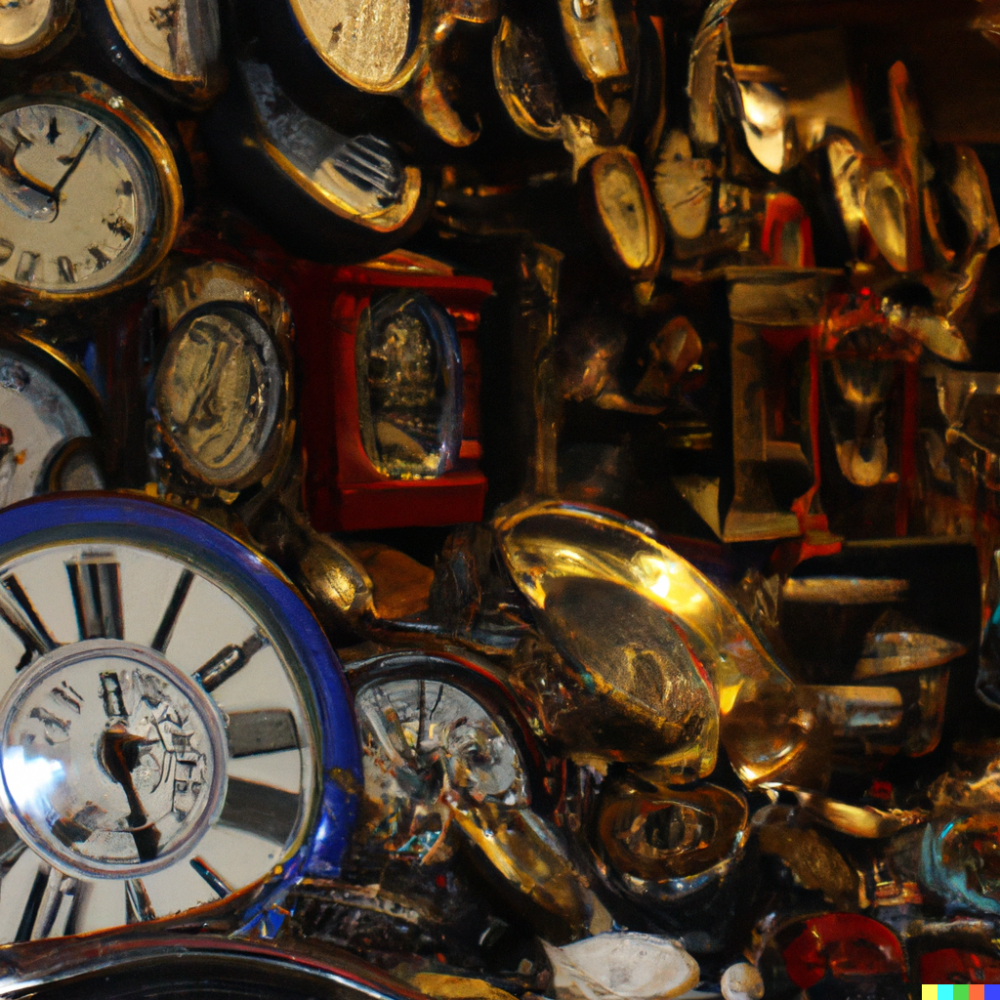‘Nothing’ is hard to do

Reflections are sparked by the strangest things.
I was on my way to deliver a teaching session scheduled for a room off a service corridor in the basement of a hospital. The corridor was familiar. I was transported back to working as a foundation doctor, when building work meant traversing this endless corridor in the dead of night to get between hospital wings.
The sensation was so reminiscent that my hand automatically wandered to my back pocket to make sure I still had my ‘list,’ the indispensable scrap of paper serving as an aide memoire, with tasks and patients scribbled all over it. For a junior doctor, losing your list is akin to losing your mind, but I haven’t carried one in over a decade.
As I walked that corridor years ago, I would often be strategising about how I could fit an almost endless list of tasks into a narrow window of time. Most of my anxiety was related to doing things. These days—and I think this is common to most doctors as they become more senior, not just those in health protection—most of my anxiety is related to not doing things.
When presented with a situation, ‘doing something’ is almost always the easiest option for experienced doctors, not least because the burden of actually doing the work typically falls elsewhere: taking a specimen, giving an antibiotic, calling a meeting, putting up a sign.
But ‘doing something’ is very frequently the wrong option, partly because resources are limited, but more importantly because not everything benefits from an intervention. Specimens won’t always change management and can cause anxiety while awaiting results. Antibiotics don’t work for everything, have unpleasant side effects, and are a limited natural resource. Meetings don’t always achieve anything and sometimes just kick the can down the road, at a huge time cost. The world already has too many signs, and signs rarely solve problems.
‘Doing nothing’ is often right. Time is a diagnostic and prognostic tool. Waiting to see if a risk is realised is sometimes more rational than responding to an uncertainty.
But ‘not doing things’ is hard. As the adage goes, the coroner doesn’t criticise the doctor who gave the antibiotic that didn’t work, but finds fault with the doctor who didn’t give the antibiotic that might have helped.
‘Not doing things’ is exhausting. Going against someone’s expectations and saying ‘no’ can be emotionally taxing as well as time-consuming. It frequently takes longer to explain and justify and document why you aren’t doing something than it would to just do it. It typically sets up a confrontation that needs to be de-escalated before it begins.
‘Not doing things’ is also necessary, particularly when it might save time. My time is limited and the demands on it are—at least as far as I can tell—unlimited. Working out where my time is best spent is not easy. Saying ‘no’ to things that I’d usually enjoy is dispiriting, but often necessary.
More challenging still is when someone else decides that ‘something must be done’ and requests my participation—even when my judgement is that the better option is to ‘do nothing.’ Do I participate to try to limit the madness? Do I opt out and leave them to it, even if this might precipitate bigger risks down the line?
I still worry about how to do numerous things in a short period of time, but the anxiety of commission is far outweighed by the anxiety of omission these days.
The picture at the top of this post is an AI-generated image for the prompt ‘a world of clocks’ created by OpenAI’s DALL-E 2.
This post was filed under: Health, Post-a-day 2023, Medicine, Reflection.